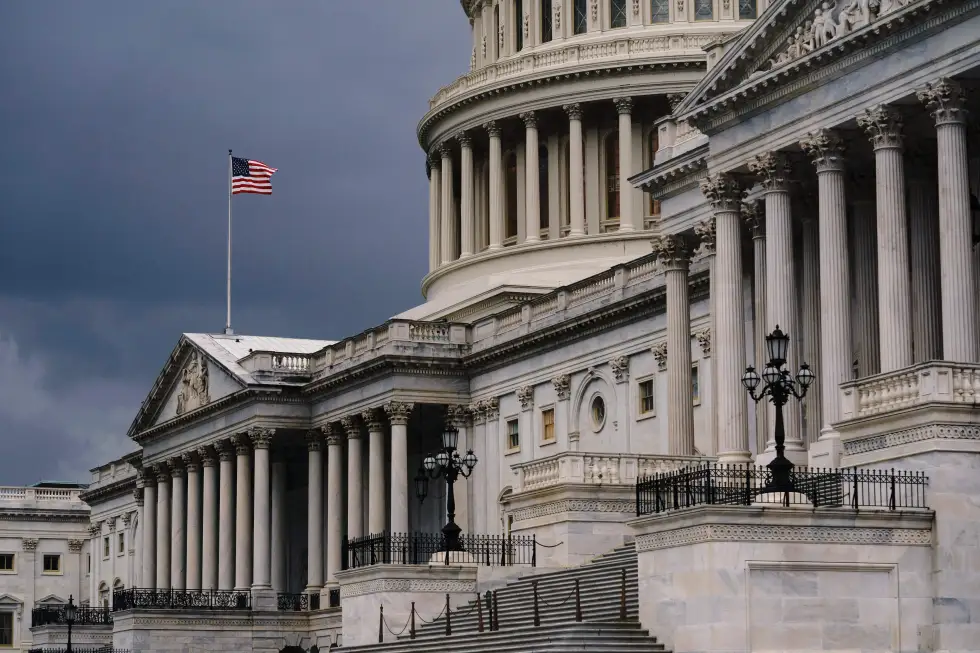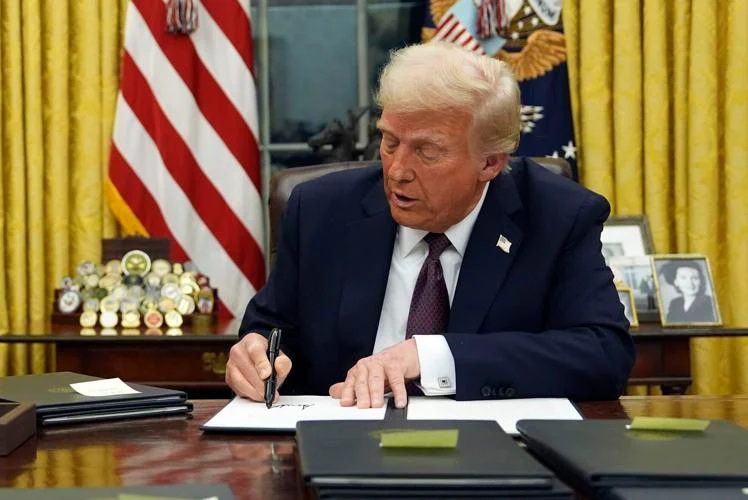WASHINGTON — President Donald Trump’s sweeping tax cut and spending bill would increase the federal deficit by $2.4 trillion over the next decade and result in 10.9 million more Americans losing health insurance coverage, according to a new report from the nonpartisan Congressional Budget Office released Wednesday.

The bill, formally titled the One Big Beautiful Bill Act, is the centerpiece of Trump’s current domestic agenda and reflects Republican ambitions to extend the 2017 tax cuts while reducing government spending. Despite mounting opposition, GOP leaders are pressing forward with efforts to move the package through Congress.
The CBO’s findings dropped as Republican senators prepared to meet Trump at the White House to strategize next steps. The House narrowly passed the bill last month, but it now faces scrutiny in the Senate, where some Republicans are seeking major revisions.
Democrats, unified in opposition, cited the report as further evidence the legislation would have dire economic and health care consequences. Rep. Brendan Boyle of Pennsylvania, the top Democrat on the House Budget Committee, echoed billionaire Elon Musk’s recent criticism of the bill, calling it a “disgusting abomination.”
“This report confirms what we feared: that this bill not only balloons the deficit but strips health insurance from millions,” Boyle said.
Republican leaders quickly dismissed the CBO’s forecast. Senate Majority Leader John Thune argued that the agency “got it wrong,” claiming the report failed to adequately factor in economic growth spurred by tax reform. He pointed to higher-than-expected federal revenues during the post-pandemic inflation surge as evidence.
White House Budget Director Russ Vought defended the legislation’s fiscal outlook, saying the deficit impact would be far smaller once “current policy” is accounted for—referring to the continuation of tax cuts that would otherwise expire.
“When you adjust for what we’re already doing, this bill actually reduces the deficit by $1.4 trillion over ten years,” Vought insisted.
However, both Democrats and some Republicans dismissed that claim as budgetary sleight of hand, accusing the administration of masking the bill’s real impact through selective math. Vought, in turn, accused the CBO of using its own “gimmick” methodology.

Despite the criticism, Trump and his allies remained committed to the legislation. “Our One Big Beautiful Bill will REDUCE the deficit WHILE delivering on the mandate given to us by the American people,” House Speaker Mike Johnson wrote on social media.
White House Press Secretary Karoline Leavitt downplayed the CBO’s findings, suggesting the agency was biased despite legal safeguards meant to ensure the office’s nonpartisan objectivity.
The CBO, established in 1974, is celebrating its 50th year of providing nonpartisan economic and budgetary analysis to Congress. Its current director, Phillip Swagel, is a former Treasury official under President George W. Bush and was reappointed to a second term in 2023.
The legislation would extend Trump’s 2017 individual income tax breaks, which are set to expire in December unless Congress acts. Republicans warn the expiration would amount to a broad tax increase on American families.
The package also includes $350 billion in additional funding for border security, immigration enforcement, and national defense, as well as a $4 trillion increase to the federal debt ceiling—required by summer to prevent a government default, according to the Treasury Department.
With the GOP holding a narrow 53-seat majority in the Senate, any dissent could imperil the bill’s passage. The CBO report is likely to sharpen debate among Senate Republicans, many of whom have expressed growing concern about federal deficits.
The CBO projected that under the bill’s proposed spending cuts and policy changes, 10.9 million Americans would lose health insurance coverage over the next ten years. The reduction is expected to come from cuts to Medicaid, rollback of Affordable Care Act subsidies, and tighter eligibility requirements for government assistance programs.
The findings add another layer of controversy to the GOP proposal, already under fire for prioritizing tax relief for corporations and the wealthy while slashing key social safety net programs.



